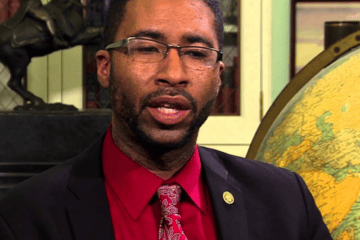Learn and use techniques that can help you manage stress.
Támara Hill, MS, NCC, LPC-BE, Anchored in Knowledge Counseling
Being a parent can be one of the most overwhelming experiences in today’s world. Although parenting can be rewarding, the fact that you are the only reliable adult in the life of your child is stressful. Sadly, parenting may not be the only thing you are stressed about. You may be stressed about bills or financial stability, your child’s education, becoming a better parent, maintaining your marriage, etc. All of these things can subconsciously pressure you. But the ways in which you manage stress is extremely important.
In fact, in 2015, the American Psychological Association highlighted in a research study titled “Stress Snapshot” that about 5.3% of women and 4.9% of men report feeling they weren’t managing their stress well. The study also examined the cause and found that “family responsibility” was a major factor. Chronic stress, stress that lasts for a long period of time, can be found in the lives of single parents, immigrants, or any other groups of people living in constant fear or anxiety.
Can you imagine what children of parents of immigrant status or parents living in impoverished neighborhoods feel when they discern stress in their parent(s)? It’s no surprise chronic stress can result in 42 million U.S. Immigrants feeling stressed, and 27.4% of African Americans feeling overwhelmed by poverty.
It’s important we remember stress can affect children:
PSYCHOLOGICALLY: Stress can trigger uncertainty, worry, and anxiety. When kids are stressed, their young minds react in major ways. They may begin to show signs of regression (i.e., reverting to a younger stage of development) or increased emotional reactivity (i.e., becoming very emotional or fearful).
EMOTIONALLY: Children may become very clingy to the parent by wanting to sleep in the same room or bed, asking for bedtime stories every night, not wanting to sleep without a nightlight, or waking up after nightmares.
PHYSIOLOGICALLY: Kids may begin to complain of gastrointestinal problems such as vomiting, nausea, or upset stomach. They may also report tight muscles and frequent headaches.
NEUROLOGICALLY/MEDICALLY: Children who experience trauma such as severe abuse (sexual, emotional, physical, psychological), a natural disaster, or some other kind of terrifying event can result in increased levels of the stress hormone cortisol which can then result in changes in the brain or terminal illnesses. Traumatic stress, especially when prolonged, can lead to signs of mental health conditions, learning disorders, or cognitive decline. According to the National Child Traumatic Stress Network, children may begin to struggle with attachment to others or develop high-risk behaviors such as substance abuse or unprotected sex.
It is very important that you, as the parent, be reminded of ways to cope with your own stress. When you cope with stress well, so do your children. Here are a few tips:
ENGAGE IN PRAYER OR MEDITATION: Prayer and meditation has been two of the most important tools in my “self-care tool box.” Anytime I would feel overwhelmed, I go to my “toolbox,” choose a tool, and then use it. I encourage you to do the same. Think of ways you can build your own “tool-box” and then commit to using it. Perhaps that “tool-box” consists of a list of soundtracks or songs you like, food you love, exercises you like, TV shows you enjoy, etc. The goal is to have a variety of options to choose from.
EXERCISE: Being active releases chemicals in the body known as endorphins which are the “feel good” hormones. When these Parental Stress Can Affect ChildrenLearn and use techniques that can help you manage stress.Támara Hill, MS, NCC, LPC-BE, Anchored in Knowledge CounselingOUR KIDS MATTERTámara Hill, MS, NCC, LPC-BE
Visit us at www.kcourhealthmatters.com13hormones are released, your brain gets a “surge” of energy. This “surge” of energy can help lift your mood, prepare your body and mind for potential stress, and renew your spirit. I truly enjoy Zumba, especially the YouTube-based fitness group known as REFITREV. Check them out!
EAT HEALTHIER 90% OF THE TIME, ENJOY TREATS 10% OF THE TIME: When you eat healthy, you feed your mind and body nutrients that it needs to survive. God created an interesting “system” that craves nutrients. We must put into our bodies what we hope to get out of it. If we want a clear mind, we have to eat food that help us achieve that. You don’t have to get on a diet or avoid good food. You can eat healthy 90% of the time (maybe 4 days a week), and eat your treats 10% of the time (maybe Friday, Saturday, and Sunday).
SEE A THERAPIST: Therapy can be helpful. You’ll want to “interview” your therapist to see if you two are a good fit. If you are a good fit, therapy can truly be a supportive avenue for you. But you won’t know how helpful it can be if you don’t commit to trying it.
ACTIVATE OUR “VILLAGE:” The “village” may consist of your parent(s), a mentor, pastor or spiritual guide, close neighbor, family member, etc. who has your best interest at heart. Activate your village by reaching out to these people.I hope you feel motivated to put these things into action. You have no other choice, your family depends on you. •
Támara Hill, MS, NCC, LPC-BE, is a therapist in Bridgeville, Pennsylvania specializing in child and adolescent behavior and mood disorders, including trauma-informed care. Hill is dedicated to empowering families within the mental health system.





